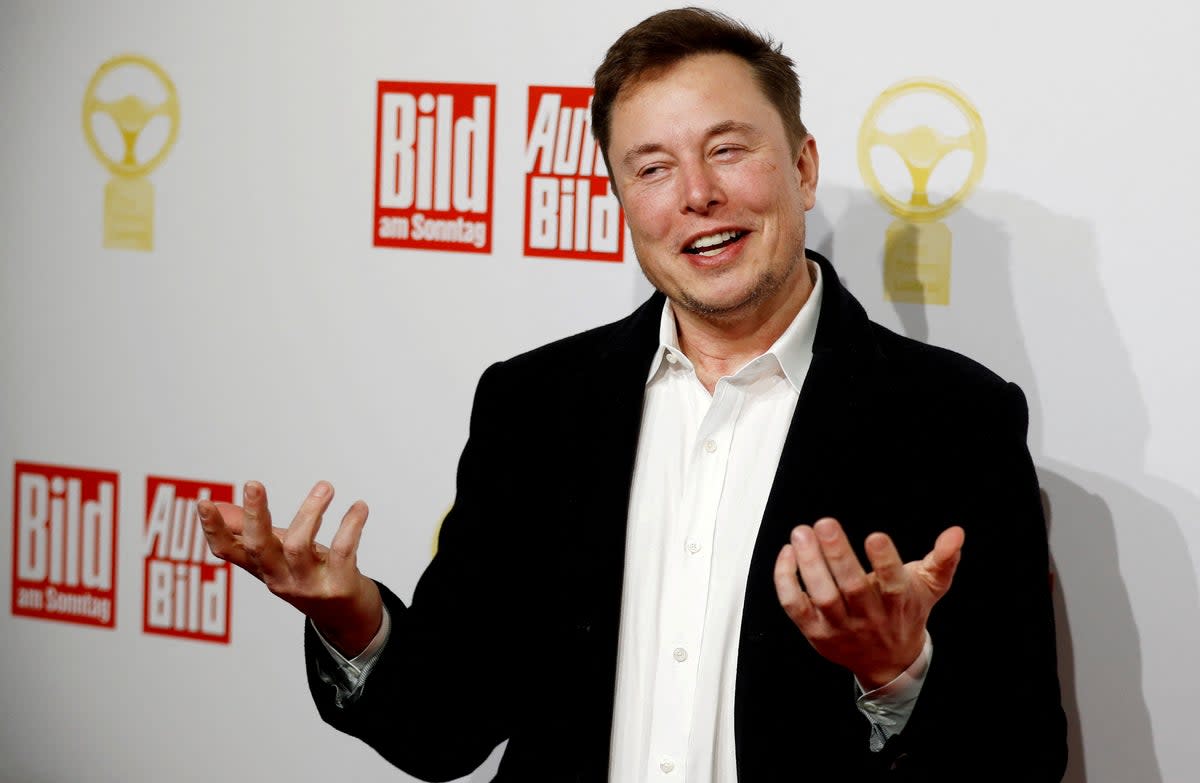Voices: From Elon Musk to the Tory party: The Top 10 cases of buyer’s remorse

- Oops!Something went wrong.Please try again later.
- Oops!Something went wrong.Please try again later.
- Oops!Something went wrong.Please try again later.
Elon Musk paid $44bn for Twitter and then tried to get out of the deal. That is 44 billion. A million seconds is 12 days. A billion seconds is 32 years. Musk paid the equivalent of a dollar a second for 1,408 years.
1. Didius Julianus, who bought the position of Roman emperor in AD193 and realised almost immediately he’d be killed for it (he was). Thanks to Sean Brocklebank and Brian Williams.
2. The Dutch, for swapping New Amsterdam, which the British renamed New York, for Surinam in 1667. Or possibly the Native Americans who sold it to them for some beads. From SisuMix.
3. The Beecham family, who bought the Covent Garden estate for £2m on 6 July 1914. The family made millions from Beecham’s pills and bought the estate, including Covent Garden market, the Royal Opera and a further four theatres, from the Duke of Bedford, intending to profit by selling it off in pieces. The First World War began three weeks later, and the family ended up in debt. Patriarch Joseph died of stress in 1916. Matters eventually concluded in the courts in the early 1920s. Thomas Beecham, the conductor, was the only one of the family who seemed unfazed. On being asked, “Do you owe, or are you owed, £2m?”, he replied, “The answer is affirmative – in both cases”. Thanks to Philip Redhair.
4. Andre-Francois Raffray. He bought the house of Jeanne Calment, aged 90, using a “life estate” contract in 1965. He agreed to pay her a monthly income for the rest of her life. She lived to be 122, the oldest documented person; he died in 1995, before she did, and his family had to keep paying. Thanks to John Peters.
5. Someone called Drawing Thyme, who bought a £300-plus personal Sony Minidisc player: “Thought the iPod-style SSD players were a fad.”
6. AOL, which bought Time Warner for $183bn in 2000. The subsequent writedown of $99bn was the largest ever corporate loss. Thanks to John Oxley and Svennig.
7. Royal Bank of Scotland, which bought ABN Amro for $98bn in 2007. RBS was rescued by the UK government in 2008 and Fred Goodwin, its chief executive, resigned. Nominated by Dinah Rose, Alpine Migrant and Ness Noodle. Other takeovers include News International, which bought MySpace for $580m in 2005 (Ian Moss, SisuMix and Bobtrue), and ITV, which bought Friends Reunited for £120m in 2005, and sold it five years later to DC Thomson for £25m (Arieh Kovler, Steve Phillips, George Eagle and Winston McGinty).
8. SNCF bought 2,000 trains in 2014 that were too big for rural stations. Nominated by Xlibris1.
9. The Labour Party, which commissioned the Ed Stone for £7,614 in 2015. Nominated by Election Maps UK.
10. The Conservative Party, which bought Liz Truss last year. Not enough remorse, IMHO. Thanks to Kyrl, Richard Morris, Nick the Wink, Robert Corbishley and Tony Reid.
I excluded all purchases of football players who turned out disappointingly, and the inevitable nominations of Brexit.
We could have a non-buyer’s remorse list too: Yahoo declined to buy Google for $1m in 1998 (thanks to Alan Chaplin); Blockbuster turned down Netflix for $50m in 2000 (Will Harris).
Thanks to Mr Memory for adding to last week’s Top 10 cabinet ministers whose first and surnames end in the same pair of letters, making it a Top 13:
11. George Legge (Earl of Dartmouth), president of the Board of Control, 1801.
12. Robert Hobart (Earl of Buckinghamshire), secretary of state for war and the colonies, 1801, after whom the capital of Tasmania is named.
13. William Fitzwilliam (Lord Fitzwilliam), Lord President of the Council, 1794.
Next week: Political sayings about meat, starting with “Where’s the beef?”
Coming soon: Points, starting with Point Nemo, the location furthest from land in the world’s oceans.
Your suggestions please, and ideas for future Top 10s, to me on Twitter, or by email to top10@independent.co.uk

